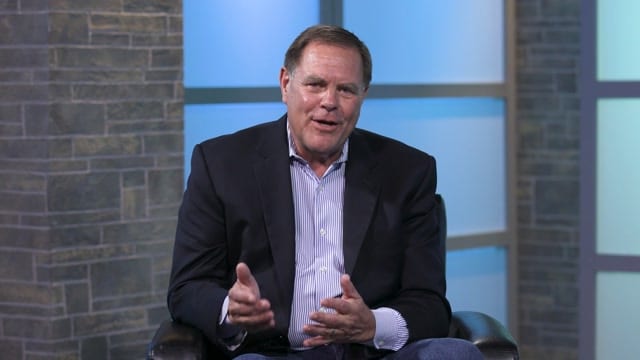
Pete Ochs describes how you can mistakenly believe your career is your purpose.

Pete Ochs describes how you can mistakenly believe your career is your purpose.

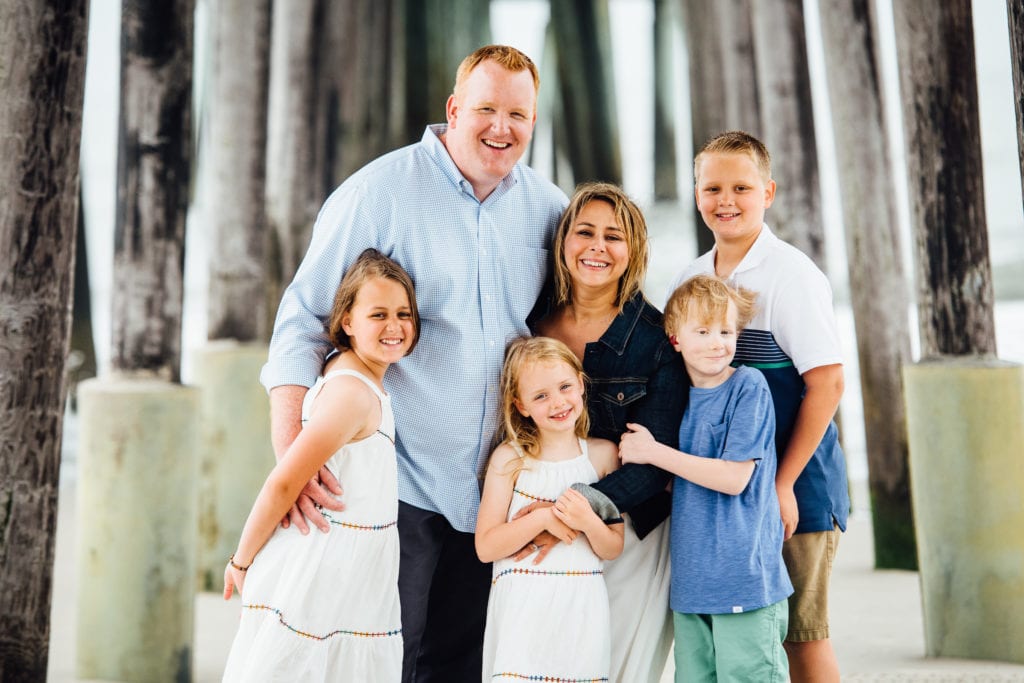 At the Global Leadership Network, we believe that youth is our future. And in order to build the future for the better, we need to invest in the next generation of emerging leaders who are and will be the change makers of that future. So, for the first time at The Global Leadership Summit in 2019 we offered a reduced student rate of $49 for kids ages 12 to 17. One of those student attendees was a young 12-year-old boy named Noah Goodall who was invited by his parents, Simon and Stephanie, to join them when they heard about this new opportunity.
At the Global Leadership Network, we believe that youth is our future. And in order to build the future for the better, we need to invest in the next generation of emerging leaders who are and will be the change makers of that future. So, for the first time at The Global Leadership Summit in 2019 we offered a reduced student rate of $49 for kids ages 12 to 17. One of those student attendees was a young 12-year-old boy named Noah Goodall who was invited by his parents, Simon and Stephanie, to join them when they heard about this new opportunity.
“When I got the email I thought, my son Noah is 12 now. Maybe it’s the time to ask him if he wants to go,” said Simon, longtime attendee of the GLS and husband to Stephanie. “So, I asked him if he was interested. And he was so excited, he bounced up and down.”
“We’ve seen a lot of early leadership qualities emerging in Noah and I thought this would be such a great opportunity to give him some strong leadership building blocks,” said Stephanie. “Noah is finding his passion and learning to dream. He has a lot of enthusiasm and compassion, and those are good beginning leadership skills. So, the Summit was an opportunity for him to learn how to bring people along, share vision, motivate people and build his confidence.”
“I knew about the Summit already because my parents talk about it a lot, and it sounded interesting!” exclaimed Noah Goodall, Simon and Stephanie’s 12-year-old son, and oldest of their four kids.
Noah is a young emerging leader with influence beyond his years. His leadership qualities shine through his driving passion to support families going through pediatric cancer. This passion hits close to home with his brother Jonah fighting pediatric brain cancer. And over the last couple years, starting at the age of 10, he’s spoken at events and in front of his school to raise money for pediatric cancer research.
I got passionate about fundraising for pediatric cancer research because my brother Jonah was diagnosed with brain cancer.
“I got passionate about fundraising for pediatric cancer research because my brother Jonah was diagnosed with brain cancer,” Noah explained. “I felt like I needed to make a difference. So, my mom came up with the idea about maybe getting involved with St. Baldrick’s cancer research. And I thought, Ok, I’ll give this fundraising a shot. I set my first goal at $550 dollars. My mom helped me with a post on Facebook, and then overnight we raised $700! And I thought, we can do something more! So, I emailed people and wrote letters, and we raised $11,000! We did the fundraiser again last year. We got more creative with Facebook advertising, and I got my siblings involved. I reached out to a bunch of businesses too. More and more people were seeing our videos and donating to the research. It was amazing—we raised $20,000 for pediatric brain cancer research!”
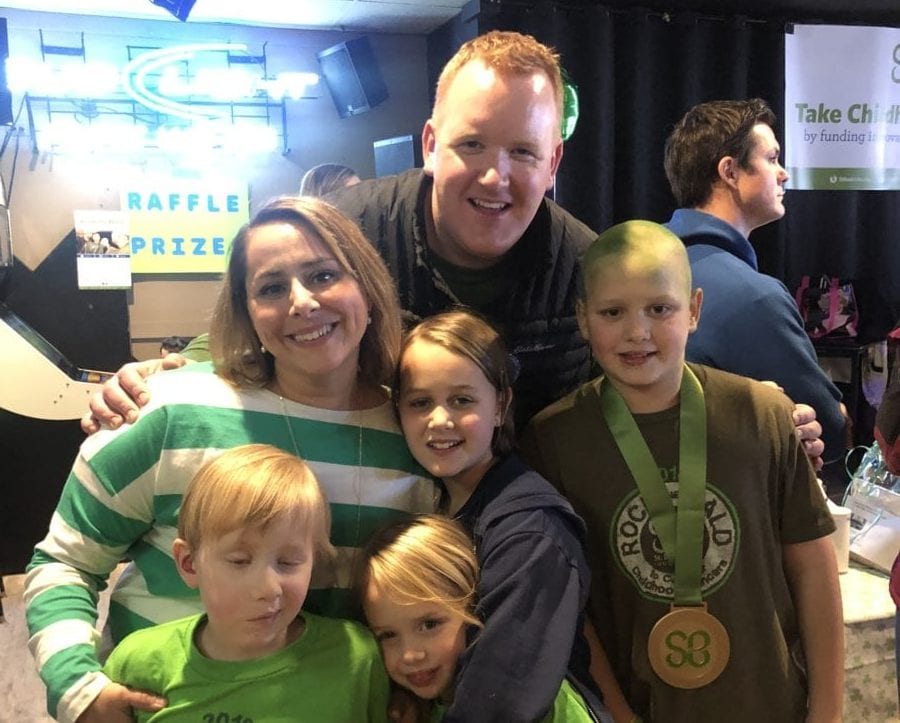 It all comes down to his love for his brother, and not wanting other families to experience the same struggle their family has gone through. “I love my brother Jonah,” said Noah. “I love how active he is and funny he is. And I love his energy. He’s always happy, except for when he’s sick. I don’t like his walker. My dream for Jonah is that he would no longer have a need for his walker. It’s so important to me because I really don’t want other kids going through what happened to Jonah, and I don’t want other families going through that either. It was a really tough time. It wasn’t fun at all.
It all comes down to his love for his brother, and not wanting other families to experience the same struggle their family has gone through. “I love my brother Jonah,” said Noah. “I love how active he is and funny he is. And I love his energy. He’s always happy, except for when he’s sick. I don’t like his walker. My dream for Jonah is that he would no longer have a need for his walker. It’s so important to me because I really don’t want other kids going through what happened to Jonah, and I don’t want other families going through that either. It was a really tough time. It wasn’t fun at all.
“Over spring break, we went to Washington DC and went to our senators to present to them and ask them to make a difference by putting more money towards pediatric health. Our whole family said something and talked about our story. Me and Jonah did most of the talking. I told them about all our challenges, and spending weekends at my brother’s hospital bed.”
“Noah amazes me with his level of confidence,” said Simon. “For a fundraiser this year, he ended up shaving his head! It was him and a bunch of adult fundraisers, and he turned out to be the top fundraiser! He spoke in front of the whole group of about 75-100 people. And yes, he has confidence, but there’s always that self-doubt that everybody struggles with, so the Summit can help him learn to work through that. Effort matters, and it’s also about taking a leap of faith, doing things, and giving it to God around the outcome.”
“At a young age, I think it’s important to learn about perseverance, and realizing you have to push,” said Stephanie. “And that’s part of why we invited him to the Summit—to build perseverance.”
Effort matters, and it’s also about taking a leap of faith, doing things, and giving it to God around the outcome.
“Being invited to the Summit felt like a once in a long while chance,” said Noah. “I thought maybe sitting for two whole days at a conference might be boring. My mom and dad said I could go to the Summit for at least one day, and if I didn’t like it, I could skip the second day. I was surprised by the people who spoke. I thought they would be boring, but they were really exciting. I could understand what they were talking about because they made it really clear and interesting. I liked meeting my parents’ friends too. I wondered what people might think about a 12-year-old being there with a bunch of adults. I was a little nervous, but it was fun. So, I begged my parents to let me go to the Summit for the second day!”
After the Summit, Noah and a friend created charts about the speakers, how well they connected, their knowledge and how to apply the concepts to their life. They ranked all of them, and Noah had a few favorites.
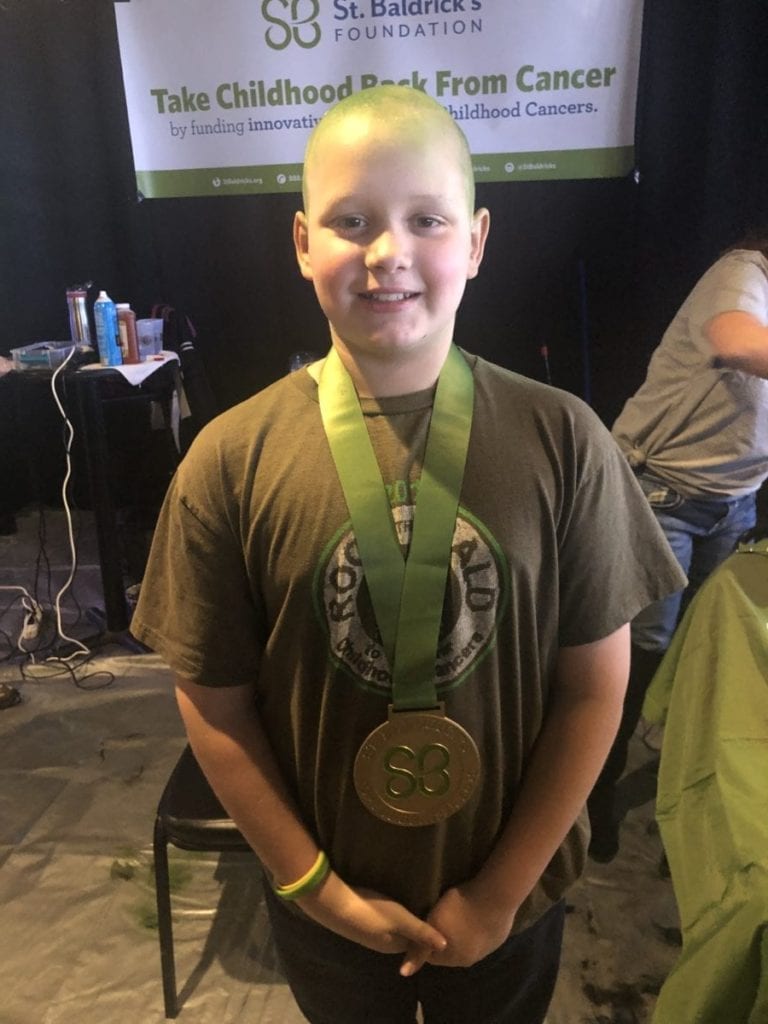 “Liz Bohannon was amazing!” exclaimed Noah. “Like, she flew in the sky! How much better can you get?!
“Liz Bohannon was amazing!” exclaimed Noah. “Like, she flew in the sky! How much better can you get?!
“And Craig Groeschel has a lot of knowledge. His message made a good connection with me. His thing about GETMO was awesome to think about how to apply that to my life. It made me think about what I can do with less time and resources to get the most out of what I’m doing like with a school project or fundraising.
“I also liked the donut guy [Jia Jiang], and what he talked about—taking a leap of faith. It was a reminder that you’re going to get rejected at some point in your life—it’s guaranteed to happen. It gave me more confidence.
“I think God gave me information through the speakers and gave me a way to apply the knowledge in my life in many different ways—like remember to be nice to other people, don’t be afraid to take risks. Like with that new kid in your classroom—maybe you don’t know him yet, but you have to go up to the kids who are left out or alone. You have to go up to them and make friends. It made me see people for who they are, not what others just think they are.”
While Noah is only 12, he has a vision for the kind of leader he wants to be when he grows up.
It made me see people for who they are, not what others just think they are.
“I don’t want to be a leader that’s mean, who tells everyone what to do,” said Noah. “I want to lead other people to success. I want to be a leader that’s caring—someone who says, Hey, you’re struggling? Let me help you. I want to teach others their own leadership skills. I want to lead people to make a positive difference in the world. It’s very easy to make a negative difference in the world, but I want to lead people to make a positive difference.
“I learned most of my leadership skills from my mom. She helps me with my events, learning how to lead stuff and write stuff. I admire leaders who are kind and hold people accountable. They have to focus on where they are now and the outcome at the end. Good leaders are also those who people can come to when they’re scared or struggling because they’re nice.”
“I would definitely encourage other kids to at least come to one day of the Summit!” said Noah. “They should just give it a shot, because it’s amazing and there are so many different people to learn from. If you’re a follower, you should still go, because everyone needs leadership skills. Eventually, you’re going to have to figure things out. I mean, you could live in your parent’s basement until you’re 40, but you can’t do that forever. Eventually you have to move out—and you need to be able to lead yourself. You need leadership skills. You could be the one blowing dandelions in the wind, or you could be the one to step up and take charge when people need you.
“Some people are really smart, but not really good leaders. But if we can get smart people to be good leaders, then the world will be a better place. Smart leaders change the world. If we’re going to go colonize on Mars, we need people that are smart leaders! If you go to the Summit, you’ll learn so much from amazing leaders who’ve learned so much in their careers and lives, and they want to share, and they’re willing to help you!”
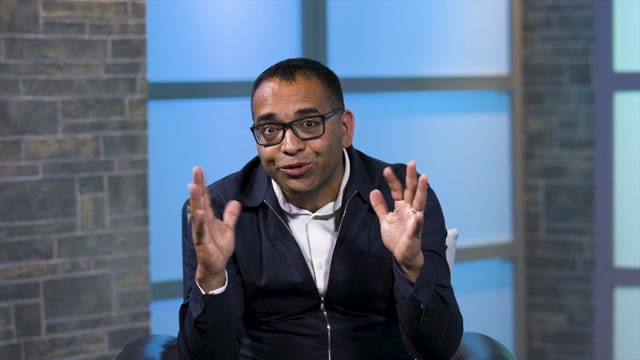
Dr. Krish Kandiah describes how you can be enticed to take a job based prestige over authentic output.

We have all heard that authenticity matters to our leadership.
So, how do I develop myself to be more authentic?
If there’s one thread that runs through the fabric of one’s character and the goal to be an effective, inspirational leader it is authenticity—seeking to be trustworthy, credible, reliable and your best true self for your people.
And flourishing workplace cultures are built on authentic leadership.
If we’re truly going to be healthy, authentic leaders we must become deeply self-aware. This takes personal work and time that involves, silence, solitude and in many cases suffering.
I remember when I came to the realization that I was a recovering people-pleaser. In a fast-paced leadership culture, I found myself becoming what other people wanted me to be. Checking off my to-do list gave me great pleasure and constant activity reinforced what I saw as my value. It happened gradually, over time and it was easy to find myself trying to be someone I was not.
Flourishing workplace cultures are built on authentic leadership.
Self-awareness brings us back. Self-awareness frees us to return and course correct. Self-awareness brings freedom as we become our true integrated selves with our unique God-given gifts, talents and strengths.
Authentic leaders constantly listen with humility and learn from the feedback of others.
At the 2019 Global Leadership Summit, marketing professional Bozoma Saint John reflected on her executive leadership role at Uber. “Even though (my) job as chief brand officer was mostly external, I saw a need to change the internal culture, which meant a lot of different things—like listening to people and their challenges.”
Authentic leaders practice several kinds of listening.
Listening to Others. The path to authentic leadership requires listening to understand the current reality. Reality is truth—good or bad. How do we come to understand organizational reality? It requires the humility to listen. Understanding can come though through discussions, employee engagement surveys, financial statements, and, yes, 360-assessments of how our leadership is experienced by those closest to us. We need to listen to understand our leadership status in this present moment.
Listening to Our Own Internal Voice. Additionally, the path to authentic leadership requires times of silence and silence where we can truly hear our own internal voice. We often have a myriad of voices in our heads—direct reports, board members, donors, customers, a parent or mentor, other close family members, etc. When I take time in silence, I can let those voices settle down, even dissipate, and I can then embrace truth.
At the 2015 Global Leadership Summit, Ed Catmull, co-founder of Pixar and a five-time Academy Award winner, described his yearly practice to reconnect with his authentic self. At the beginning of every year, he would spend a week alone at a retreat center. No meetings, no interruptions, no emails and no phone calls. He didn’t describe it as a spiritual exercise, necessarily, but talked about how truly refreshing he felt from the inside-out. This practice of silence and solitude centered him and became the springboard he needed to lead one of the world’s most creative cultures for the coming year.
In order to become an authentic leader, we must embrace humility as a gateway to personal growth.
Listening to God. As Christians, the path to authentic leadership also means hearing the voice of our ever-present God who lives within us. His voice through Scripture, the Spirit, along with the trusted wisdom of others and the reality of my present circumstances show me who God made me to be and what next steps to take. Through a kind of holy listening, my growing self-awareness has fed a deepening awareness of God, including how he has gifted me to authentically lead others for his sake and his purposes and plans.
Unfortunately, leaders often deceive themselves (or are deceived) about their reality. They lack the humility to accept reality about themselves or their organizations. When we allow ourselves to become deceived, we cannot be authentic.
In my work, I see how some leaders’ perspectives about themselves and their situation can be fed by insincere or flattering feedback. To be positively perceived by the boss, feedback is often communicated the way he or she likes to hear it. Unfortunately, the more layers there are in an organization, the less truthful feedback a top leader receives.
In order to become an authentic leader, we must embrace humility as a gateway to personal growth. Greater self-awareness cultivates a new depth and desire for learning about ourselves. Leaders who seize this truth open themselves to God’s authentic transformation. Such humility is at the core of our being able to learn.
As a leader, I’ve found that seeking to be authentic is not often easy. Our culture encourages us to cover up our mistakes and weaknesses. Being vulnerable is often seen as weakness. Yet, authenticity is the path to true impact in your leadership.
Your authentic leadership is powerful evidence of your unswerving devotion to “be shepherds of God’s flock that is under your care.” (1 Peter 5:2, NIV).
Your authenticity as a leader will become infectious on your team.
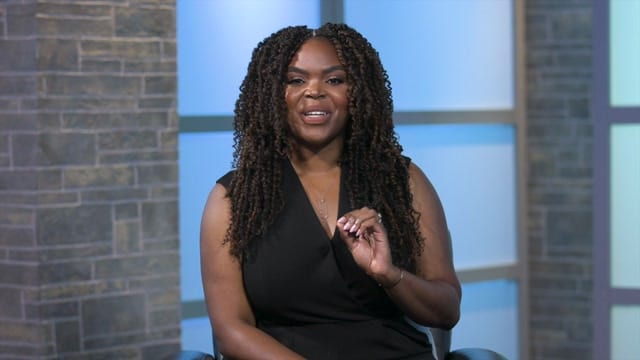
Mayor Aja Brown coaches you to listen to your critics.
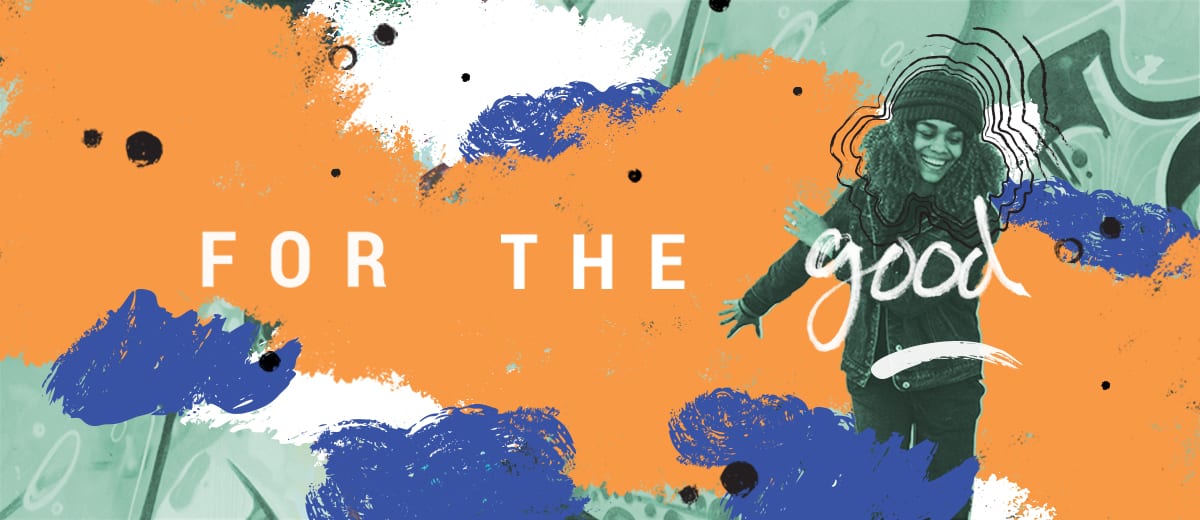
Study from UC Berkley about wonder
Amber Rae “Choosing Wonder over Worry”
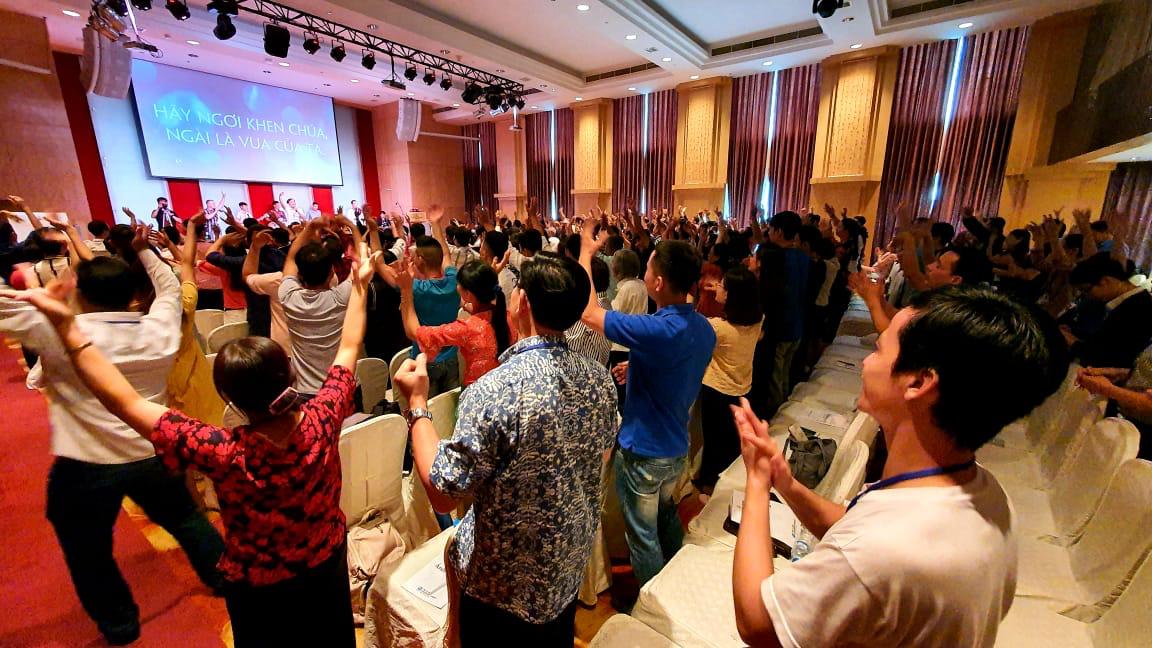
The Global Leadership Summit is officially under way as it is taken around the world to another 135 countries, and 900+ sites, including Hanoi, Vietnam, where more than 300 leaders gathered for this year’s event in early September 2019.
Be inspired by the impact the GLS has made on these incredible leaders this year:
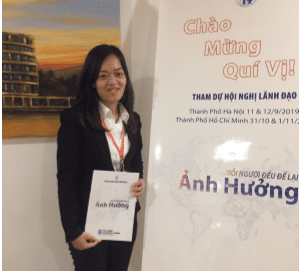 As the first female facilitator at The Global Leadership Summit in Vietnam, this is the most impactful and powerful event for me. I feel so proud of myself for being able to inspire and encourage female leaders in Vietnam to step up and prove to the world that females can do the same things as males could do. I’m an interpreter and a trainer at my husband’s church and other churches, and I think I should do something different to build up leadership skills in those I’ve been working with.
As the first female facilitator at The Global Leadership Summit in Vietnam, this is the most impactful and powerful event for me. I feel so proud of myself for being able to inspire and encourage female leaders in Vietnam to step up and prove to the world that females can do the same things as males could do. I’m an interpreter and a trainer at my husband’s church and other churches, and I think I should do something different to build up leadership skills in those I’ve been working with.
I’ve learned a lot from GLS. As a woman and a leader, I have the same heartbeat as Carla Harris who presented the message “Characteristics of a LEADER.” Leaders are required to have many good characteristics so that people can follow them freely, but I was deeply impressed by the character traits, one of the most important being authenticity—be yourself don’t being afraid to take risks. People will follow you because of who you are and your unique character. I accept risk taking, and thanks to Carla, I can now view that with positive thought. If you never take a risk, you never change, never grow and you will be left behind. I hope the GLS expands into many different places in Vietnam. I believe if this happens, there will be many lives transformed through this incredible event.
– Nguyen Kieu Trinh
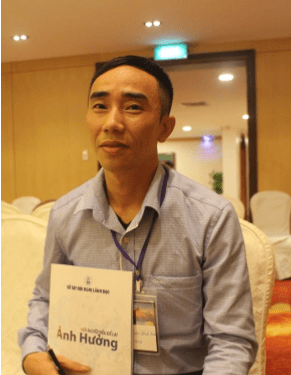 I recently became a believer in Christ, and over the last six months, I’ve tried to stop my drug addiction. I used to follow Buddha, but after coming to Jesus, my mind has been brightened. Buddhism focuses on where people go after death, but Christianity shows me where human beings come from, what we were born to do and about life after we pass away. As an addict, I lost everything meaningful in life—my job, friends and family. But God has turned my life around. Someone at my church introduced me to The Global Leadership Summit. I now feel equipped with some useful lessons, including Simon Sinek’s talk on the Infinite Game, where I learned that our biggest enemy is actually ourselves.
I recently became a believer in Christ, and over the last six months, I’ve tried to stop my drug addiction. I used to follow Buddha, but after coming to Jesus, my mind has been brightened. Buddhism focuses on where people go after death, but Christianity shows me where human beings come from, what we were born to do and about life after we pass away. As an addict, I lost everything meaningful in life—my job, friends and family. But God has turned my life around. Someone at my church introduced me to The Global Leadership Summit. I now feel equipped with some useful lessons, including Simon Sinek’s talk on the Infinite Game, where I learned that our biggest enemy is actually ourselves.
We don’t need to fight against other people. Instead, let’s try to renew ourselves so that we can become a better person than we were yesterday. There are no winners and losers, only improving ourselves day by day. This motivates me to be consistent with my belief as I try hard to develop more in the future. And then John Maxwell helped me think about what good changes I’ve been able to make over the last few months—I’m more responsible for my life now. I hope to have more time to be with Jesus and learn more and more through the GLS.
– Tran Thanh Tuan
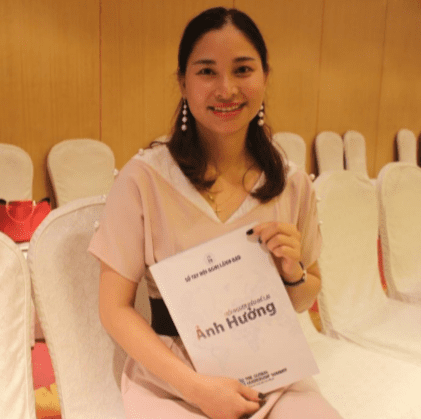 God brought me here to the GLS. He touched my life by using the speakers. He used Erwin McManus to encourage me. I got his messages and the answer to my problems. Now I will live as if today were my last day. If I have any fear, I will feel it, face it and do it anyway. I will see difficulties or challenges as opportunities that allow me to grow and become better in the future.
God brought me here to the GLS. He touched my life by using the speakers. He used Erwin McManus to encourage me. I got his messages and the answer to my problems. Now I will live as if today were my last day. If I have any fear, I will feel it, face it and do it anyway. I will see difficulties or challenges as opportunities that allow me to grow and become better in the future.
– Phan Thi Tuyet Trinh
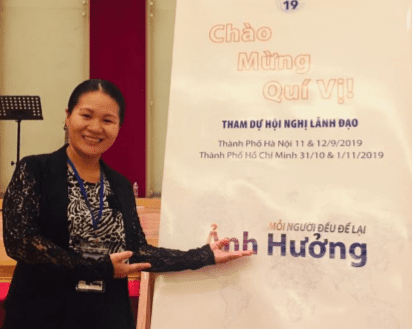 I’m originally from Hanoi, but after struggles living here, my husband and I decided to move to Danang City to start a new life in a new place full of hope and opportunity. I have five children, and one of them is paralyzed. I deeply sympathized with Erwin McManus during the GLS because my life has been filled with pain, hopelessness, depression and failure, but those things have just made me stronger and more courageous. I related to Erwin when he said you have to go through pain to be free. Living in Danang is far away from Hanoi, but I decided to take a flight to come join this event because of its tremendous benefits. It is my third time attending, and after listening to all the messages, I believe I made a right and wise decision.
I’m originally from Hanoi, but after struggles living here, my husband and I decided to move to Danang City to start a new life in a new place full of hope and opportunity. I have five children, and one of them is paralyzed. I deeply sympathized with Erwin McManus during the GLS because my life has been filled with pain, hopelessness, depression and failure, but those things have just made me stronger and more courageous. I related to Erwin when he said you have to go through pain to be free. Living in Danang is far away from Hanoi, but I decided to take a flight to come join this event because of its tremendous benefits. It is my third time attending, and after listening to all the messages, I believe I made a right and wise decision.
These messages are so valuable and influential. I’ve learned so much. Although I am a leader who trains at least 60 people at local churches in Danang, I admit my leadership needs to be improved by taking risks, being vulnerable and acting as more of a visionary. My followers will get the benefits as I improve. I think I’m a good leader, but I want to be a great leader who can build up more leaders around me. I want to bring the GLS back to Danang and discuss the messages with my people. I hope that there will be more leaders coming to the GLS and we will all get better together.
– Luu Quyen Huong
Also, check out the highlights from the Youth GLS in Hanoi!
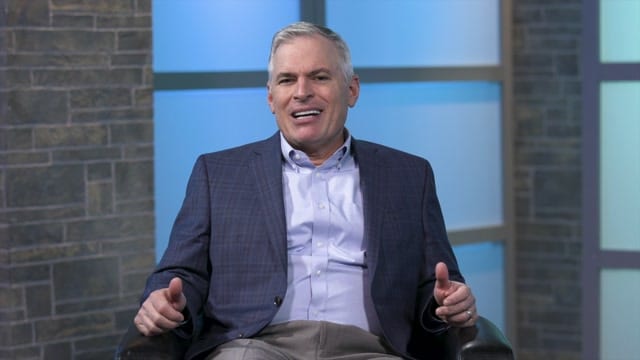
Patrick Lencioni advises you to hire people for cultural fit over competency.
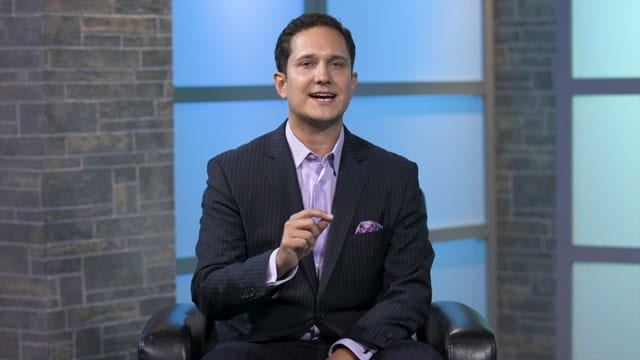
Jason Dorsey coaches you to listen to wise advice from people who are more experienced than you.

When I was in elementary school, I tried out for the community theatre production of Cinderella and auditioned for the role of—you guessed it—Cinderella. I mean, go big or go home, right?
And I landed it! And the show eventually made its way from rural Illinois to New York where I was the youngest lead to ever grace a Broadway stage.
Oh, Liz Forkin Bohannon! The musical theatre child prodigy! I think I saw a special on Bravo about her once, you perhaps thought to yourself while browsing the shelves of your local bookstore.
Just kidding.
You’d likely never heard my name before because here is how that audition actually went down: I went up against seasoned high-school-aged thespians for the role of Cinderella. My mother, a very intelligent woman who surely recognized the unlikelihood of a “successful” outcome, did not try to persuade me otherwise. In fact, she practiced my song with me, drove me to the audition and whispered a hopeful and sincere “Break a leg, Lizzy Pea!” as I walked through the curtains into the spotlight on an empty stage in front of four scary-looking judges. I gave it my best go and afterward my mom took me to McDonald’s for a celebratory ice cream cone.
In the few days between the audition and receiving a call from the casting director, I threw my eight-year-old self into a Cinderella character study. I dreamed about the costume changes and the lights and determined where I could surreptitiously pinch myself to illicit enough pain to squeeze out some fake, award-winning tears.
A few days into my preparation for my dream role, we got a phone call from the director. I indeed had made the cast!
My role was . . .
Bird.
I did not, in fact, have a single line in the entire play. Just a few scenes where I’d hop around on stage with a handful of other mediocre wannabe woodland animals.
A BIRD.
A bird who didn’t even have a NAME.
I was devastated.
We each have a sacred part to play.
When my mom relayed the news, I burst into tears and ran into her bedroom closet, shutting myself in and sobbing in the dark. I was, of course, sad about my dashed dreams, but I also remember the feeling of being utterly humiliated.
I replayed in my head all the practice that went into that audition. All the unabashed dreaming out loud about what it would be like to be Cinderella. I couldn’t believe I was so stupid to want something that bad and to actually believe I had a chance.
After a few minutes of sobbing by myself, my mom opened the closet door and sat down with me while I cried. She scratched my back and told me that she was proud of me for trying. And then, through my tears, I verbalized what was surely assumed by all parties: I would not be participating in that stupid play, obviously.
And then my sweet, supportive, back-scratching mama sat up straight and made it very clear that actually that was not how this was going to go down. I had auditioned, and I had received a role. And I was not allowed to quit because it wasn’t the starring role I had imagined. She told me that practices started on Monday and that I would absolutely be attending. Case closed.
And then she told me that sure, it stung to be a bird when you wanted to be Cinderella, but that I would be the best non-speaking bird that stage had ever seen.
She echoed the famous show-biz words of Constantin Stanislavski. “There are no small parts,” she said. “Only small actors.”
She promised me that she’d help make me an epic bird costume, and sitting there in that dark closet, we brainstormed a character name because while I couldn’t change my role, I could at least have some fancy feathers and the dignity of having a character name that wasn’t just a species classification.
We went back and forth for a while and finally decided on “Biddy Bird.” It was no matter that this “character name” would never reach beyond the two of us or even make it into the official program.
When the time came for opening night, I Biddy Bird-ed my heart out. I sang loudly, hopped endlessly, and even managed to depart from the official choreography for a second and shake my fancy tail feathers like the rebel, avant-garde, avian-inspired thespian that I was.
I would love to tell you that this role prepared me for my next slightly better role and so on and so forth until I managed to build a successful theatre career. But in fact, the very next play I tried out for was Babes in Toyland where I landed the role of . . .
AND I KID YOU NOT
A moth.
I mean, if there is anything more demoralizing than a nameless bird, it’s most certainly “moth.” The path to being demoted from a non-speaking bird is a narrow one, but I managed to find and walk it.
You. Are. Average.
I mean, A MOTH?!
But I digress.
The point of that experience was not, in fact, to prepare me for a slightly better role and launch me into the eventual Broadway success I dreamed about. Rather, it taught me that we are neither called to vie for the spotlight nor to shrink into the chorus line. We are simply called to figure out what we have to offer,
the gift we have to give,
the words we have to speak,
the art we have to make,
the song we have to sing,
and then go all in and belt it out like a buck-toothed eight-year-old trying to win a Tony award for a non-speaking role in a community theatre production.
We each have a sacred part to play.
What the world doesn’t need are more people who are desperately trying to convince themselves and others they are above average special Cinderellas because they think that is what will earn them the spotlight and that the spotlight itself will give them a sense of worthiness and purpose.
The world also doesn’t need more people who shrink into the chorus line because they erroneously believe they are inherently below average and are terrified of what others might think of them should they spread their wings and try to fly.
Because the truth is, you’re, like me, most likely . . .
Pretty average.
I know, I know. I have a real gift for inspiring words. Please someone make a beautiful hand-lettered Insta-Quote out of that:
You. Are. Average.
* * * * *
I’m going to ask you to trust me again as we embark on a little experiment: every time you say
or think you’re struggling with an “insecurity,” I want you to replace the word “insecurity” with “Immature Ego.”
What? Ego? Me?! The nerve of this lady...
If talking about your Ego makes you feel defensive, allow me to redirect your aghast over to Franciscan friar and spiritual teacher Richard Rohr. Blame him!
Rohr says our Immature Egos are “a social and mental construct to get you started on your life journey. It is largely defined in distinction from others, precisely as your separate and unique self. It is probably necessary to get started, but it becomes problematic when you stop there and spend the rest of your life promoting and protecting it.”
Our Immature Egos are also, problematically, “inadequate to the big questions of love, death, suffering, God or infinity.”
He goes on to say, “When you are connected to The Whole, you no longer need to protect or defend The Part. You are now connected to something inexhaustible.”
Connected to The Whole. Gives me goosebumps every time.
When you’re connected to The Whole, you will realize that the story you are partaking in and coauthoring is SO VERY BIG that you can no longer believe in a story so small that it has you in the very center.
You will become more enamored with the Bigness of the Beautiful Story and what we can accomplish together than with your own individual performance in it.
When you Own Your Average, you can take risks and finally take flight.
On this journey to building a life of purpose and impact, I can all but promise that you will say and do the wrong thing. You will flail and you will fumble. And at times it will be such a train wreck, you will think you’ll never recover from it. You’ll probably beat yourself up and say terrible things to yourself that you wouldn’t dare say to another human. But time and time again, you will wake up the next day to a sun that did not fall out of the sky in response to your mistake. This will happen over and over until you finally start to let go of your Immature Ego that whispers the lie that you’re powerful enough to screw it all up for good.
Richard Rohr goes on to tell us that our Immature Egos are “more bogus than bad.”
I love this so much. What this tells me is that I can stop beating myself up about my Immature Ego and instead simply get on with the work of helping my Ego grow up a little bit so I can be a part of a bigger, juicier story.
As you attempt to mature your Ego, please be kind and gentle with yourself the way you gently and kindly and patiently help a child grow and learn instead of attempting to fault and shame them into maturity. The process of maturing our Egos is lifelong work, so you don’t need to be a jerk about it. Your Immature Ego used to suit you and serve a purpose. It’s not evil or bad, it’s just that as you grow into becoming part of The Whole, the Old Costume you constructed no longer fits.
When we stop being obsessed with the Almighty Bell Curve, always asking “How do I measure up?” we can instead put our energy into becoming who we were created to be and encouraging others toward the belief that they are also an irreplaceable part of The Whole. When you Own Your Average, you’ll start to understand that every human on Planet Earth is a unique combination and sequence of The Divine and carries an equally valuable, one of a kind, never-going-to-see-it-again brand of magic.
We are each unique.
But we are not unique for being unique. (Mind bender, I know.)
When you start believing this about yourself, you will start to channel all the energy you recover from worrying about how you compare into a beautiful vision of collective ambition—dreams that will raise the tide, not just for yourself but for others too.
When you Own Your Average and do the intentional work of helping your Ego mature, you will take on greater challenges and say yes before you’re ready because you’re less terrified of failing and more interested in growth and movement forward.
You get to channel every ounce of that recovered energy you used to spend protecting yourself and worrying about what other people will think into solving interesting problems and building an extraordinary life of purpose and impact for yourself and others.
When you Own Your Average, you can take risks and finally take flight.
And you, Biddy Bird, in all your Average glory, were meant to fly.
Copyright © 2019. Used by permission of Baker Books. All rights reserved.
“We welcome and encourage comments on this site. There may be some instances where comments will need to be edited or removed, such as:
If you have any questions on the commenting policy, please let us know at heretoserve@globalleadership.org”
Recent Comments